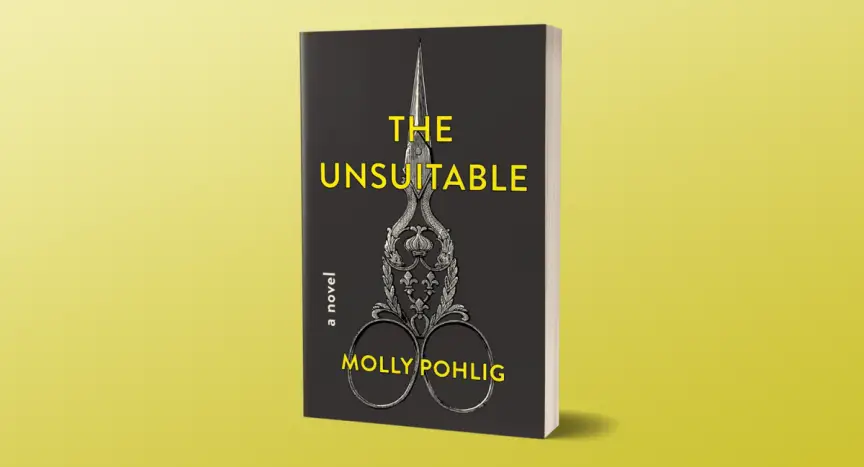Jane Austen’s Pride and Prejudice opens, “It is a truth universally acknowledged, that a single man in possession of a good fortune, must be in want of a wife.” Molly Pohlig’s debut novel The Unsuitable stands as a direct refutation. Set contemporaneously to Austen, the novel tells the story of Iseult Wince, a twenty-eight year old woman whose father wants to marry her off and be rid of her.
Iseult doesn’t want to be married. She’s driven away the suitors her father has invited to dinner for a decade. There are so many Iseult needs a journal to tell them apart. Her success is genuinely funny to read about because, “Iseult derived a real satisfaction from causing a true, panicky silence.” As repulsive as her behavior is, her circumstances scare suitors off as well.
Early on Iseult’s housekeeper and only true friend Mrs. Pennington says, “this is the year we get your father to relinquish the mourning!” The mourning in question is for her mother, who Iseult is told died during childbirth. Meaning that Iseult has only been allowed to wear black for her entire life. To make matters stranger, Iseult has a running dialogue with her mother, Beatrice. Their conversations are set apart from the rest of the text and bolded, with Beatrice’s lines appearing italicized so she can tell Iseult things like, “by the time i was twenty-eight i’d been dead and buried six years.”
The only time that Iseult gets any peace is when she’s sleeping or after she’s self-harmed. She collects pins and scissors, hiding them around her room and on her person so when she’s alone she’ll be able to stab herself. The behavior has covered Iseult in scars. The biggest is on her collarbone, which she’s told was broken while her mother gave birth.
Mr. Wince, as she calls him rather than father, blames Iseult for her mother’s death. While she shoulders that guilt, he stays as distant as a parent can. When Iseult eavesdrops on a conversation between him and Mrs. Pennington, Pohlig writes, “Many of Iseult’s dealings with her father occured from this distance.” Much of The Unsuitable’s power is derived from the weight of Iseult’s isolation.
If she has any hope, it’s from her impending marriage to Jacob Vinke. Vinke has taken a genuine interest in her. While other men ran away when they found out about her running dialogue with her mother, Jacob asks what her mother’s voice sounds like. He invites her for walks. He seems genuine. Of course, his skin is silver because of a medicine he applies topically, but Iseult feels that it’s a low price to pay to marry a kind man.
Between Iseult’s silver suitor, quasi-imprisonment, and mourning clothes, The Unsuitable is clearly a gothic novel, but Pohlig’s acerbic wit sets it apart. Her sentences hilariously critique power structures, in a way that calls back to the late great Shirley Jackson. The line, “The room was dark and oppressive, and you could tell that Mr. Wince had been told that this was what a man’s room ought to look like” is funny and shows how toxic masculinity hampers men.
RELATED: We Have Always Lived in the Castle is a Good Adaptation of a Great Book [Review]
Beyond the humor, Pohlig’s writing is excellent throughout. She has a deep understanding of her characters. In a line that may be indicative of the entire novel, she writes, “Iseult was not interested in healing. She was interested in what was underneath, what was inside.” Pohlig also describes the gore of an accident in a way that has scarred this reviewer’s psyche.
The Unsuitable is a good book. It’s well worth your time.
Wicked Rating – 8/10
The Unsuitable is available now from Henry Holt & Company.






